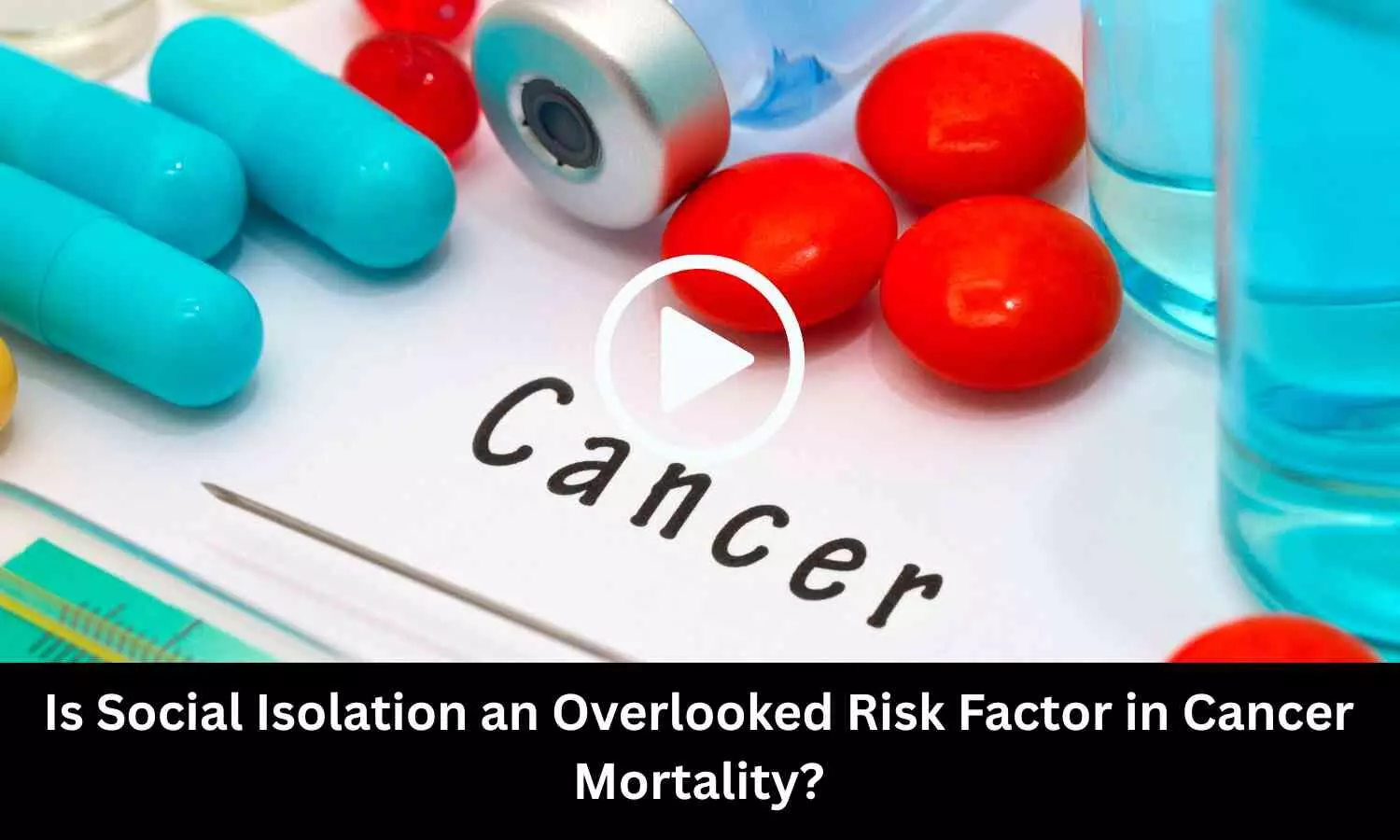Is Social Isolation an Overlooked Risk Factor in Cancer Mortality? A New Study Explores
- byDoctor News Daily Team
- 17 October, 2025
- 0 Comments
- 0 Mins

People withcancerwho experience loneliness orsocial isolationface a significantly increased risk of death, not only from cancer itself but also from all causes, according to a new pooled data analysis published in the open-access journalBMJ Oncology. As global cancer rates are projected to reach 35 million new cases and 18.5 million deaths annually by 2050, researchers aimed to better understand whetherlonelinessplays a measurable role in worsening health outcomes. To investigate, researchers conducted an extensive review of published studies up to September 2024. Out of 148 identified studies, 16 met the inclusion criteria, involving a total of 1,635,051 cancer patients with an average age of 63. Thirteen of these were included in a meta-analysis. The studies spanned several countries, including Canada, Japan, the USA, and European nations, and covered a wide range of cancer types. Using recognized tools like the Social Network Index and the UCLA Loneliness Scale, the analysis found that loneliness was associated with a 34% higher risk of death from any cause and an 11% increased risk of death from cancer, even after adjusting for small sample sizes. Additionally, three studies excluded from the pooled analysis still reported consistent links between social isolation and increased mortality. However, the researchers warned that variations in methodology and the observational nature of the data mean the results should be interpreted with caution. Still, they highlighted potential mechanisms behind the findings: “Biologically, the stress response triggered by loneliness may lead to immune dysregulation and heightened inflammatory activity,” which can fuel disease progression. Meanwhile, psychosocial barriers including stigma, isolation from treatment effects, and disrupted social identity can compound the emotional and physical toll of cancer. If confirmed in future studies, the findings suggest a critical need to include targeted psychosocial interventions in cancer care to support not only emotional well-being but also survival. Reference:Cheng S, Yi J, Pace K, Santiago A, Johnny C, Nunez J, et al. Impact of loneliness on cancer mortality: a systematic review and meta-analysis. BMJ Oncology. 2025;4:e000840. https://doi.org/10.1136/bmjonc-2025-000840
Disclaimer: This website is designed for healthcare professionals and serves solely for informational purposes.
The content provided should not be interpreted as medical advice, diagnosis, treatment recommendations, prescriptions, or endorsements of specific medical practices. It is not a replacement for professional medical consultation or the expertise of a licensed healthcare provider.
Given the ever-evolving nature of medical science, we strive to keep our information accurate and up to date. However, we do not guarantee the completeness or accuracy of the content.
If you come across any inconsistencies, please reach out to us at
admin@doctornewsdaily.com.
We do not support or endorse medical opinions, treatments, or recommendations that contradict the advice of qualified healthcare professionals.
By using this website, you agree to our
Terms of Use,
Privacy Policy, and
Advertisement Policy.
For further details, please review our
Full Disclaimer.
Recent News
NEET 2025: TN Health extends round 3 choice fillin...
- 31 October, 2025
DME Gujarat extends PG Ayurveda, Homeopathy round...
- 31 October, 2025
Decade-Long Study of PCI and CABG in Left Main Cor...
- 31 October, 2025
AI-Powered ECG Interpretation Found Better than St...
- 31 October, 2025
Daily Newsletter
Get all the top stories from Blogs to keep track.


0 Comments
Post a comment
No comments yet. Be the first to comment!